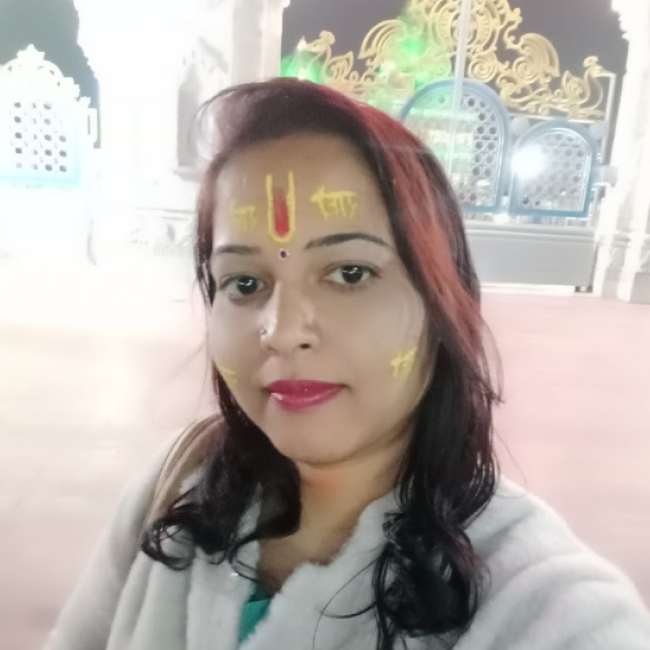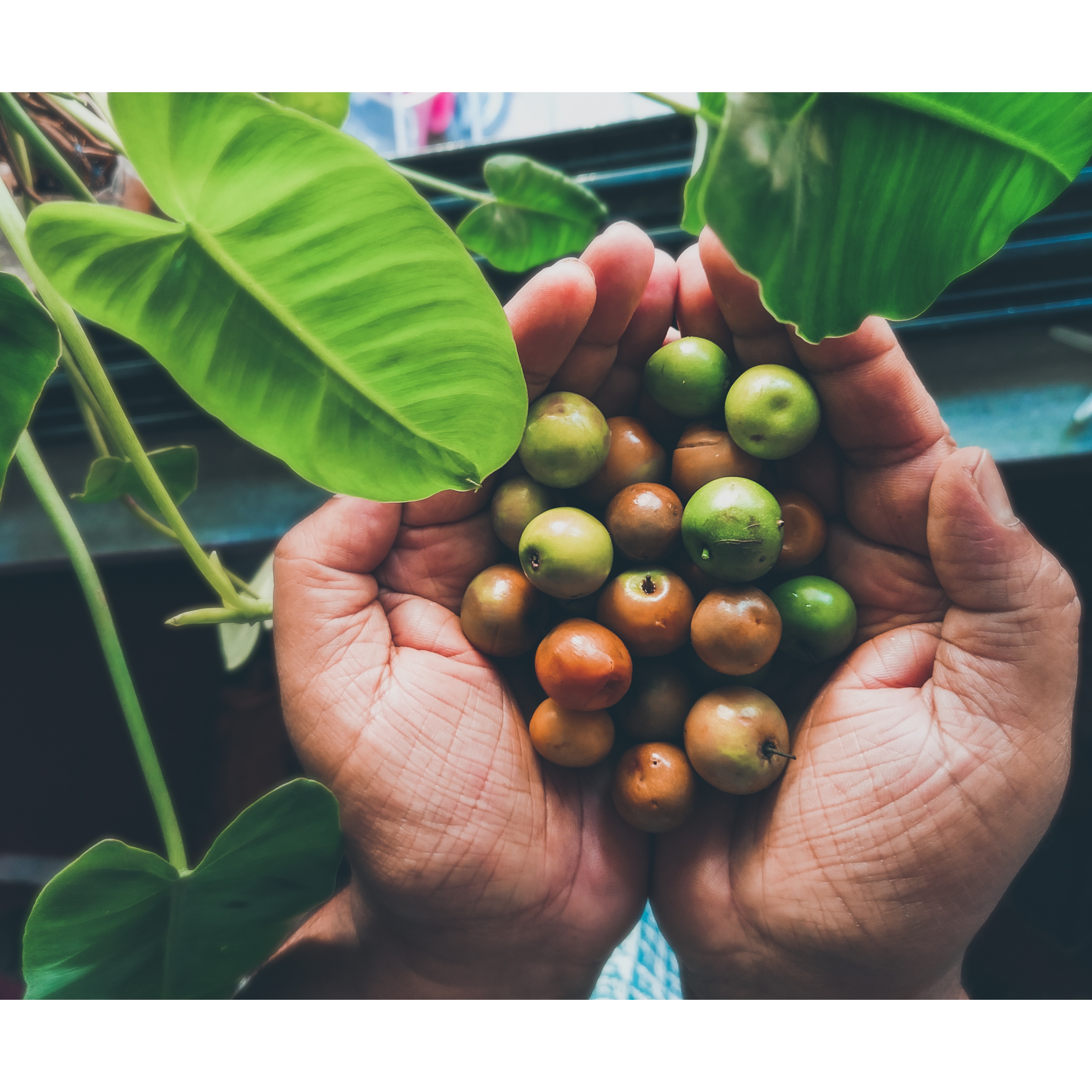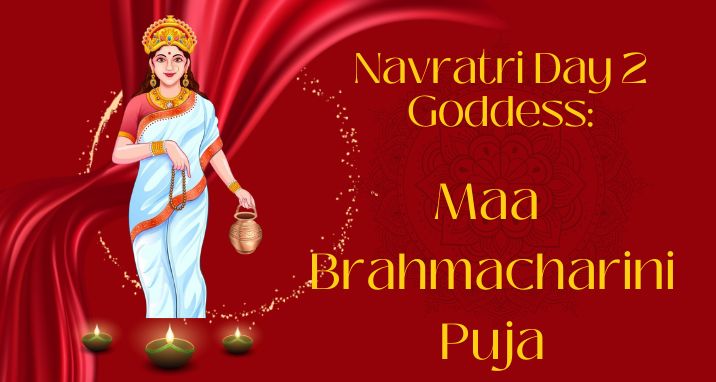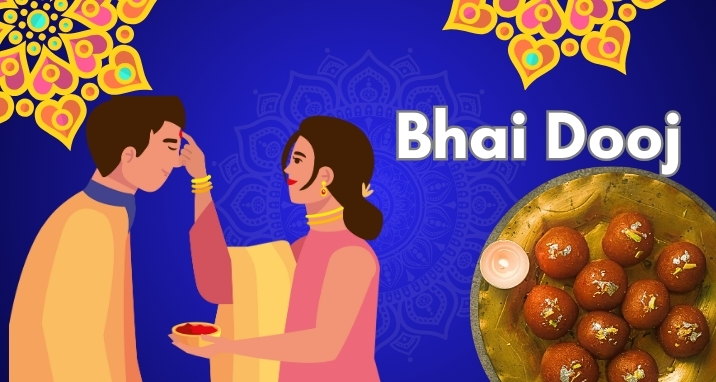Bhai Dooj: Significance, History, Tithi and Puja Vidhi
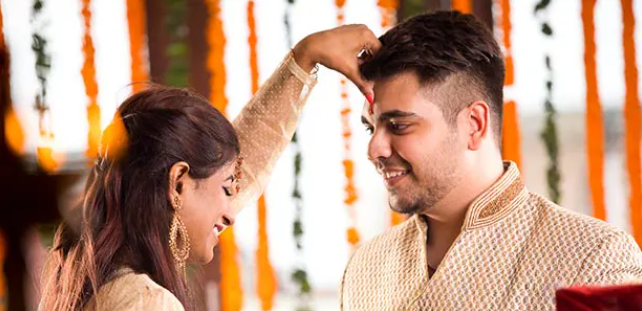
In our culture, every relationship is celebrated. Perhaps that is what makes our interpersonal bonds so strong and dependable. One such occasion to celebrate the most fun and loving relationship between brother and sister is Bhai Dooj. It is one of the most popular rituals.
Mostly, it occurs on the 2nd day of the lunar day of the Shukla Paksha in Kartik month, hence also called Bhai Dwitiya or Bhratri Dwitiya, (Dwitiya means second day). It occurs two days after Deepavali and just the next day after Goverdhan Puja. The rituals are similar to that of Raksha Bandha. It is probably one of the few rituals which is being celebrated with equal enthusiasm throughout the country. In different places, people have different names for the occasion, though the underlying theme of love is the same, in all. In Karnataka, Bhai Dooj is known as Sodara Bidige, while West Bengal calls it Bhai Phonta. In Nepal, the festival is called Bhai-Tikka, and in Maharashtra, it is referred to as Bhau Beej. In North India, it goes by the name Bhaiya Dooj or Bhai Duj; in Gujarat, it’s known as Bhai Beej. Despite the diverse names, the essence of the festival remains the same – a special occasion for siblings to express their love and strengthen their relationship.
Bhai Dooj Significance
In terms of astrology, this day coincides with Chitragupta Jayanti. Both of these festivals are observed on the second day of the Shukla Paksha, which is the brightest half of the month of Kartik. On this day, it is believed that worshipping Bhagwan Chitragupta can bring blessings to the devotees.
Let us know the history behind this significant day.
Bhai Dooj History
Bhai Dooj has historical significance. It’s been a part of celebration in our culture since ancient times.
There are two stories associated with the Bhai Dooj tradition. Once, Bhagwan Krishna met his sister Subhadra after defeating a demon named Narkasur. During this meeting, Subhadra applied a tikka on Krishna. This tradition is observed during Bhai Dooj.
Once upon a time in the distant past, Surya married the beautiful princess Samjna, also known as Sangya. Their union bore two twins, Yama and Varni (Yamuna), who grew up together. However, as time passed, Samjna found the intense radiance of her husband unbearable and decided to return to Earth. To conceal her absence, she left her exact replica, Chaya, as her shadow, ensuring Surya remained unaware of her departure.
Chaya, the shadow, proved to be a cruel stepmother to the twins. She had her own children and persuaded Surya to expel Yama and Varni from the heavens. Varni descended to Earth, becoming the sacred river Yamuna, while Yama assumed the role of the Lord of Death in the underworld.
Many years elapsed, and Varni, now happily married to a prince, yearned to reunite with her brother. Yama, too, missed his sister dearly and resolved to visit her. Overjoyed by the news of his arrival, Varni warmly welcomed him, with their home already adorned with lamps for Diwali.
Yama was deeply touched by his sister’s affectionate reception and insisted on presenting her with a gift. Although Varni initially declined, she eventually made a heartfelt request. She asked that brothers remember their sisters on this day and visit them, while sisters offered prayers for their brothers’ happiness.
Yama granted her request, proclaiming that brothers who lovingly bestowed gifts upon their sisters on this day would be blessed with long and healthy lives. Hence, the festival is also called Yama Dwitya.
Let us see the timings of Bhai Dooj in 2023.
Bhai Dooj 2023 Tithi
-
Bhai Dooj Aparahna Time: 01:14 PM to 03:02 PM
-
Duration – 01 Hour 48 Mins
-
Dwitiya Tithi Begins: 02:06 AM on Nov 14, 2023
-
Dwitiya Tithi Ends: 01:17 AM on Nov 15, 2023
To know the correct timing as per your region, you can speak to expert pundits and astrologers
Bhai Dhooj Puja Vidhi
The Vidhi for Bhai Dhooj is easy to follow. All you need to do is follow the below steps:
-
During this occasion, sisters invite their brothers to partake in a special ceremony, followed by a delightful meal.
-
The Aarti Thali should be decorated with items like vermilion, sandalwood, fruits, flowers, sweets and betel nuts, following traditional customs.
-
The Bhai Dooj Puja must adhere to the specific time, as per region.
-
The sister applies tikka to her brother, who sits within a marked square made with rice or ground rice.
-
Before the Aarti, the sister presents her brother with fruits, betel nut, crystallised sugar, betel leaf and black grams.
-
After the tilak ceremony and Puja, the most exciting part unfolds as gifts and blessings are exchanged between siblings.
-
The brother pledges to protect his sister’s life, while the sister prays for her brother’s long life and prosperity.
-
On this day, brothers should abstain from eating food before worship is done. As it is considered inauspicious. Additionally, if a brother cannot visit his sister’s home, he can partake in a meal by the riverbank, symbolically treating a cow as his sister.
There is a famous saying that family is not an important thing, it is everything. And what better day to reconnect with our friends from birth than the day of epitome significance?
In case of any confusion regarding any aspect, you can rely on our expert pundits and astrologers.
Frequently Asked Questions
Q: What should not be done on Bhai Dooj?
A: Things to avoid on Bhai Dooj:
- Don’t eat alone; share a meal with your sister. If you can’t meet your sister, eat near a cow.
- Avoid arguing or fighting with your sibling on this day.
- Show respect for the food your sister prepares for you.
- Value the gift given by your brother and don’t disrespect it.
- Be honest with your sister; lying may displease Yamraj (the God of Death).
- Refrain from eating or drinking before the ceremony.
- Brothers and sisters should not consume anything before the ritual.
- Sisters should cook food for their brothers with love and care.
- Remember to give your brother a ‘Gola’ as it holds special significance on this day.
NOTE: However, customs and traditions may differ from place to place and state to state. So, make sure, you are following your family traditions. And if you are not sure, you can always consult a Pandit for guidance.




